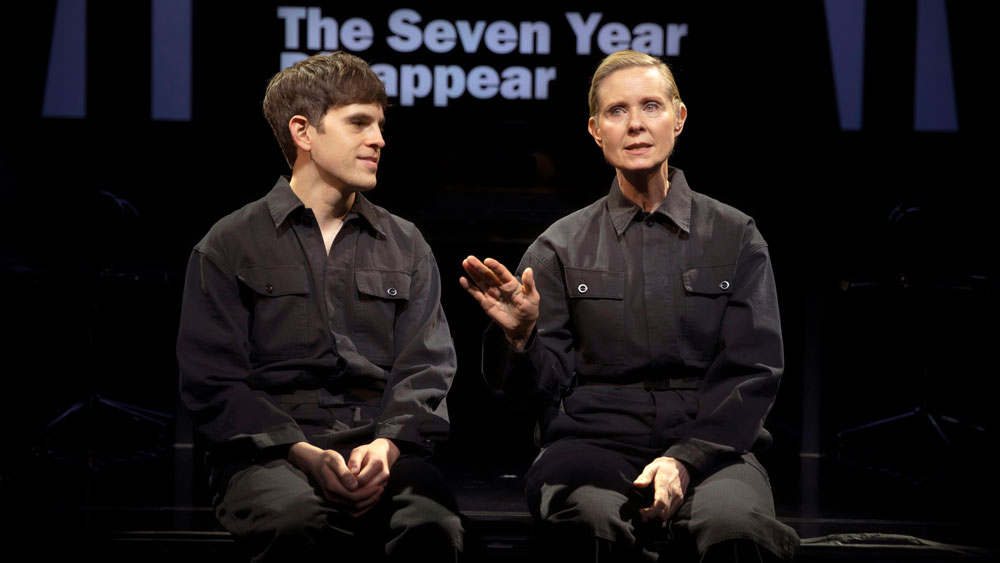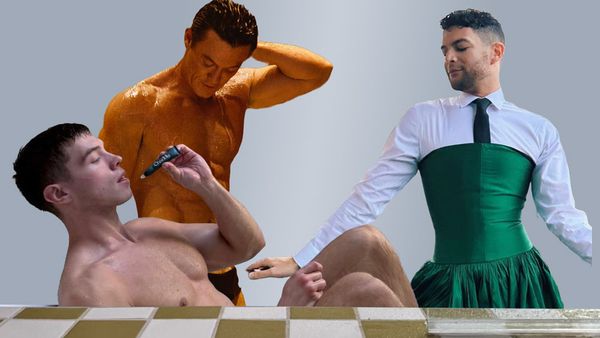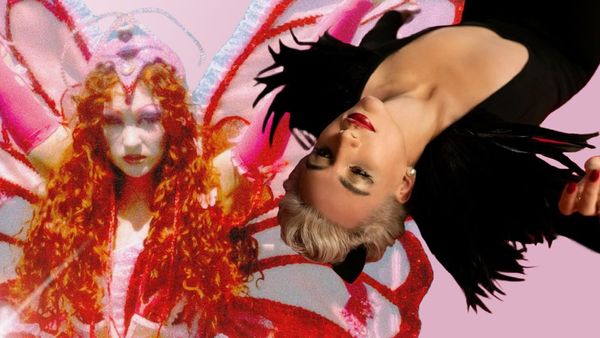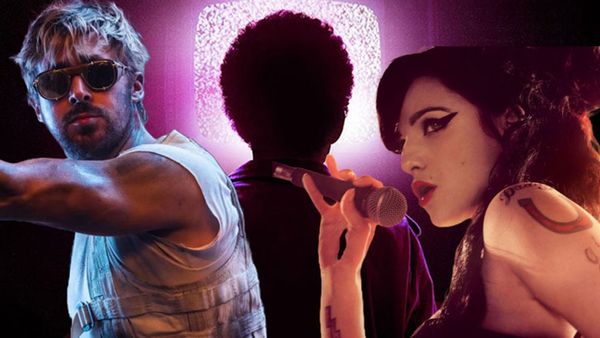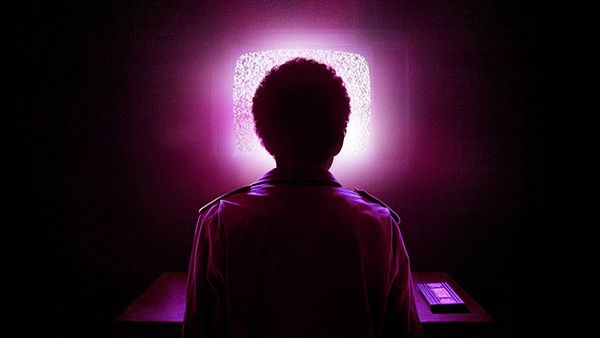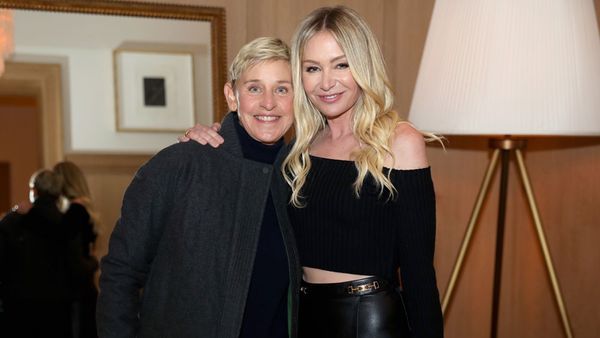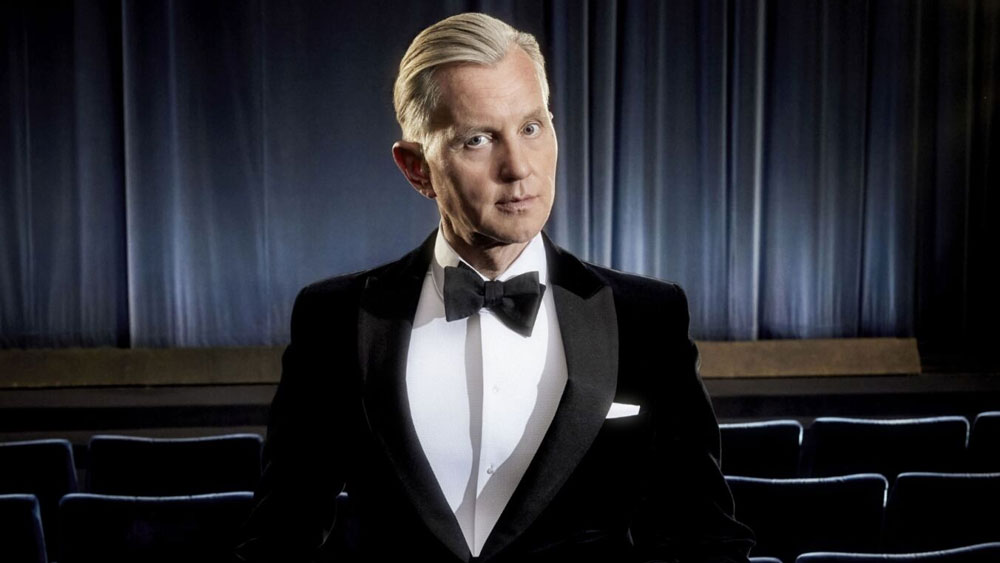
Mar 13
EDGE Interview: Everything Old is Brilliant Again with Max Raabe & Palast Orchester
Robert Nesti READ TIME: 9 MIN.
When Max Raabe & Palast Orchester first appeared in Boston, it came with a perfect confluence of performer and performance space. That came in 2012 when Raabe and his retro-troupe opened the newly renovated Paramount Theatre in Boston under the auspices of The Celebrity Series of Boston.
The Art-Deco movie house, which opened in 1932, had long been in disarray when Emerson College bought it and chose to turn it into a performance facility, and they did so with the upmost care at a cost of $77 million. Using the designs from similar Paramount Theatres around the country, the auditorium was restored to look like what the theater may have looked like in the 1930s in glorious Art Deco style. Boston, it should be noted, has its number of handsome performance spaces, but they often date to the time before Art Deco. Due to the Depression, this style of the 1930s, so prominent in other parts of the country, is rather thin in the city. This made entering the new auditorium for the first time a revelation.
But what made this experience so unique was Raabe & Palast Orchester who appeared on the stage as if they just got off a zeppelin from Berlin. Raabe and his band members, the men dressed in black tie, its women in silvery dresses, were a vision of sophisticated dance band from the year – 1932 --- the Paramount opened, and the synergy of the space and the artist thrust the audience into what it would have been like to see such a band a hundred years ago.
For an example of Max Raabe and the Palast Orchester, watch their most recent music video.
While that experience was unique, Raabe & Palast Orchester do not need the Art Deco trappings. On their subsequent returns to Boston (under the auspices of the Celebrity Series of Boston), they recreated what it was like to see a sophisticated German dance band of the tail end of the Weimar Republic, shortly before the Nazi took over and artists like Raabe and his band members saw their lives in danger. Raabe has said that while his band reflects the world so brilliantly realized in "Cabaret," neither the film or its numerous stage iterations truly reflect the darkness of the period, when political turmoil and unemployment ruled; but what the Raabe and the Palast Orchester succeed in doing is create a place, like in the musical "Cabaret," where that troubled world was outside the dance hall.
Their success over the years is part of the ongoing historical interest in the period, as also seen in such television shows as the recent "Babylon Berlin," which features music by the Palast in its soundtrack; and Broadway musicals like Barry Manilow's recent "Harmony," which followed the career of a real-life German band from the period. And, of course, "Cabaret," the Kander and Ebb musical whose most recent (and said to be quite sensational) iteration from London heads to Broadway with stars Eddie Redmayne and Gayle Rankin in place.
For their part, the Palast Orchester returns to the United States for eight dates this month which brings them to Indianapolis, Chicago, Milwaukee, Boston, Washington DC, and New York City, where they will play at Carnegie Hall. (Click here for tour dates.) In Boston their Celebrity Series-sponsored concert will be playing at Symphony Hall on March 19. For tickets, click here.)
In addition, Raabe and the Palast Orchester released two albums last year. The first, "Mir ist so nach dir" (Klassiker der 20er und 30er), a collection of classic songs from their repertoire. And a second – a deluxe edition of their 2022 album "Wer hat hier schlechte Laune," which translate into "Who's in a bad mood here?" The title song, written by Raabe, has an irresistible hook that is likely why it has become so popular in German-speaking countries. Raabe has released the CD in a special deluxe edition that, he says on the Palast webpage is intended to help his English fans learn German with full translations of the songs German lyrics.
EDGE spoke to Raabe about the genesis of the Palast Orchester as they were on tour in Germany prior to the return to the United States for their current US tour.
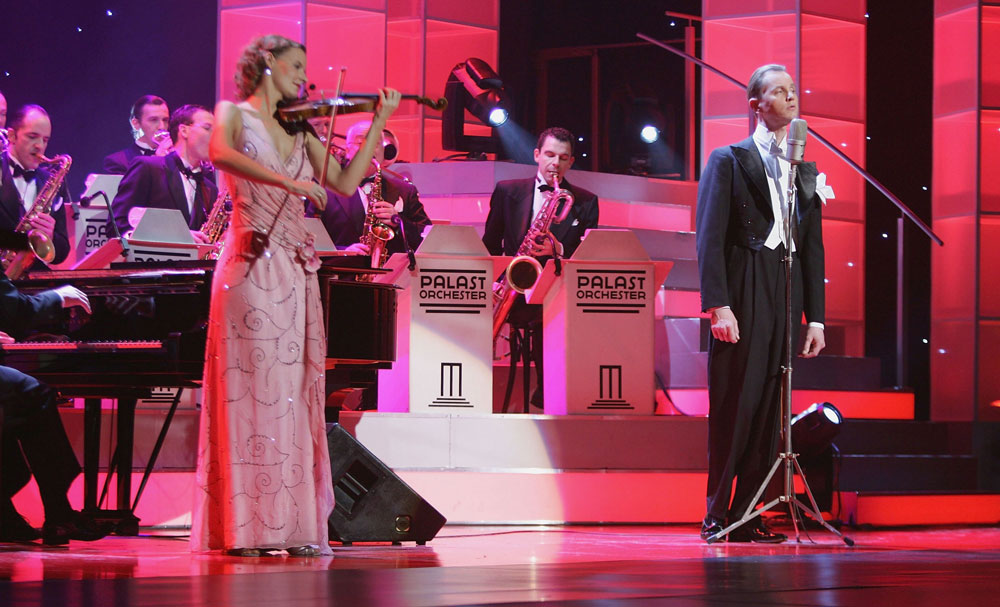
EDGE: When did you come to the United States for the first time?
Max Raabe: It was in 2001. We were invited by the Getty Museum in Los Angeles, and we thought that maybe we could do a few other concerts moving forward. That was the beginning.
EDGE: Before that, before the band got started, you were studying opera – you had planned to be a baritone, but the Palast Orchester entered your life and took over. Is that what happened?
Max Raabe: Yeah, we were students when we found each other. But my plan was to be a baritone, and to be part of the operatic and symphonic worlds. But then the Palast happened. We had found these original band arrangements from the 20s and 30s. And we asked some colleagues to come together and to play this original material. That was the beginning.
EDGE: Was a Palast modeled after an after another orchestra?
Max Raabe: Not specifically. We are just the typical orchestra from the 20s and 30s. We are an orchestra from that time. If you look at footage from YouTube of orchestras from the period, we are nearly the same. And the name, in the 1930s, everything dance halls were dance palaces, so we thought, with a little bit of irony, of calling ourselves the Palast Orchester.
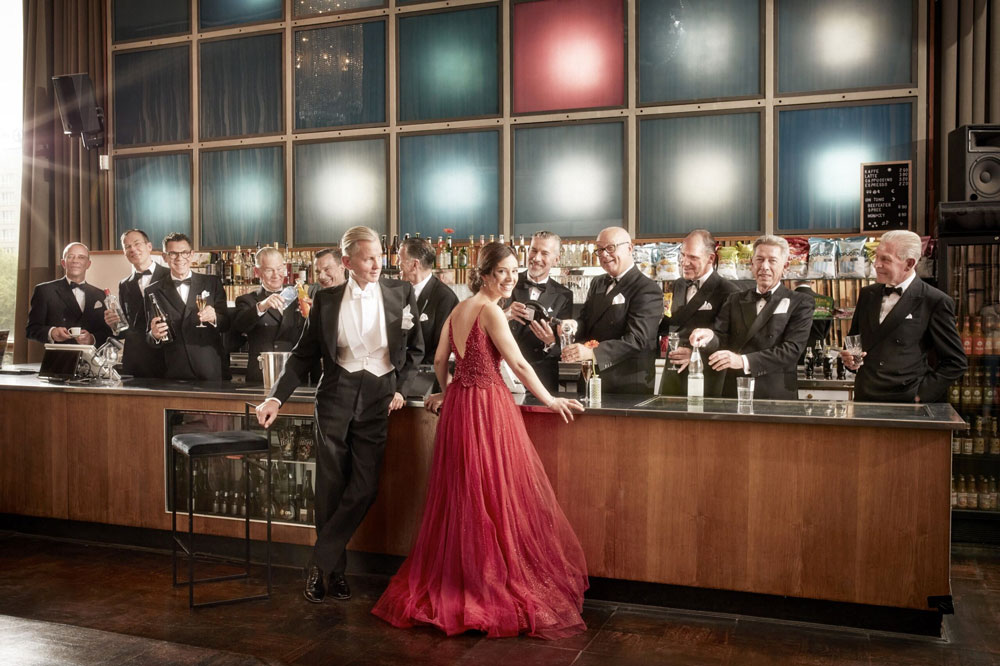
EDGE: And you have a very clean, elegant look. That didn't really create the period. How do you evolve your style?
Max Raabe: I found a tuxedo and I was standing there and start singing. Just standing there. Not moving. Then some asked, 'why don't you move?' Why don't you clap your hands?' And I said, no. Let them think it looks crazy, me just standing there. I liked it and I kept it. But you know, I am a lazy person.
EDGE: Now about your voice. You trained to be an opera baritone, but your voice is much higher with the Palast. How did you achieve that sound?
Max Raabe: You know, in these original arrangements, they key can be high. At first, I would ask for them to be a bit lower, pointing out it was quite high for me. But my arrangers would say, 'oh, no, let's try it higher.' I had been in a choir where I was a tenor, so it was something within my reach. I guess you can say I have a high baritone. So, I adjusted, and it has worked out fine for all around, which was good because, you know, the orchestra was too lazy to play it in another key. (laughs)
EDGE: If the Palast were around in the 1930s, would they have toured the United States?
Max Raabe: No. You had enough brilliant band and singers already in the United States. You wouldn't have needed us. But back then the American bands and the European bands listened to each other and learn. And what was unique about the music from 1920s and 1930s is the harmonies that enhanced the elegant, sophisticated melodies. That is what made the music of the time unique, which is why it would be stupid to change them. And is why we are always in the same style. Since then we have music change from the Swing Era to Rock and Pop; but we return to the sound that is special and identified with the 1920s and 1930s that is really timeless in the same way that Beethoven and Mozart are. And what is very special about the period's songs is their use of irony, that has been lost in time. Today's pop hasn't a lot of irony. The songs speak about problems between relationships or whatever. But I think that the special attitude of the time was the use of irony.
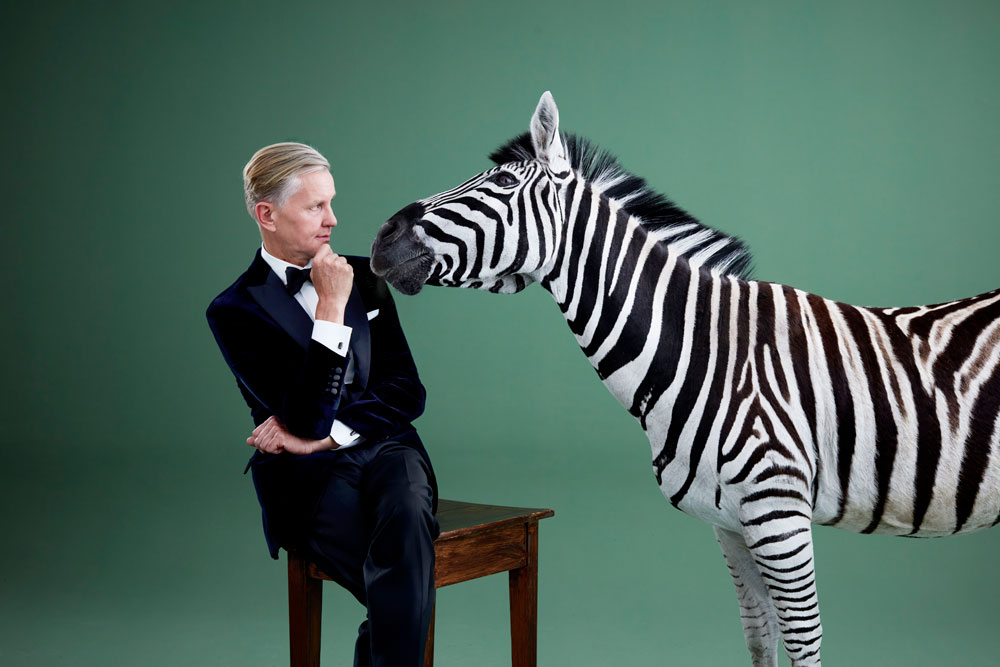
EDGE: Yes. There is plenty of irony and humor in your songs and presentation, but there's also a lack of it in your delivery of some of the great romantic songs, such as "Cheek to Cheek..."
Max Raabe: Yes. Not every song contains irony. And when I sing a sad song, a melancholy song, a romantic song, I sing it differently and some have told me they are touched. These songs have clear and timeless messages about feelings. But are handled by the composers in very elegant ways in the music, which was new for the time. This is the special quality that touches us today in much the same way they touched someone 100 or so years ago. The same is true of the humor. We will repeat a funny line from a hundred years ago and the audience laughs uncontrollably. The joke doesn't need to be explained or updated. It's original meaning is clear and still funny today.
EDGE: Are you surprised by your popularity in the United States
Max Raabe: Yes. But we are also surprised by our success during our entire career. Starting the Palast was fun and helped finance our musical studies, but we never thought it would be any more than that. Then we started going, going, going, and we are still working. People come back and see us again and again. Our mantra is to bring a wonderful concert to our fans. The best way to do tha tis with sentimental songs, funny songs and nice effects on stage. But the music is in the first line. And we want to present the perfect interpretation of each song. But in the States, we try not to confuse the audience with too many German songs. You know we have 700 songs in our repertoire, most from the 1920s and 1930s, so we have much to choose from. And we do have our favorites that we will be bringing to the States. We hope our American audiences like them as well.
For more on Max Raabe and the Palast Orchester, visit their website.
Robert Nesti can be reached at [email protected].

